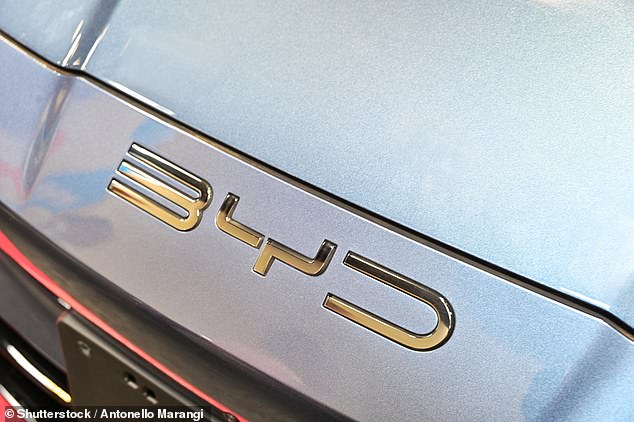- Brussels will impose additional tariffs of up to 38% on electric vehicles made in China
- Intended to protect automakers who felt they were being undercut by the Chinese.
- Now, China’s government has stepped up the rhetoric
Officials in Beijing have warned that strict tariffs on electric cars “may trigger a trade war” with Europe.
Tensions have risen in recent weeks after Brussels said it would impose additional tariffs of up to 38 percent on electric vehicles (EVs) made in China.
The move is aimed at protecting European carmakers who felt they were being undercut by Chinese companies such as BYD and Geely. The charges are on top of the existing 10 per cent tax on cars imported into the EU, meaning they now face total tariffs of up to 48 per cent.
But the measures, which are the result of a nine-month investigation, risk driving up the price of electric vehicles. Chinese companies have urged Beijing to strike back at European cars. Now, China’s government has stepped up the rhetoric.
“The European side continues to escalate trade frictions and could trigger a trade war,” a spokesperson for China’s Ministry of Commerce said yesterday. “The responsibility lies entirely with the European side.”
Warning: European automakers feel Chinese companies like BYD and Geely are undermining them
The comments came shortly before German Economy Minister Robert Habeck began a three-day trip to the region in his bid to calm Chinese anger.
German carmakers would be the most exposed to any countermeasures from China, as almost a third of their sales came from there last year.
EU car exports to China amounted to £16.5bn in 2023, while the bloc bought £8.2bn worth of electric vehicles from China, according to figures from the EU statistics agency.
British brands such as MG and Lotus, owned by Chinese parent companies, could also be caught in the crossfire.
American giant Tesla has also suggested that it will increase the price of its electric vehicles in the face of tariffs.
The Tesla Model Y, which costs around £45,000, is currently the most popular electric car in the UK.
The latest European tax will take effect on July 5, unless China and the EU can reach a deal. The UK has remained silent on whether it will impose its own tariffs, but ministers have previously said they would wait to see the results of the European investigation.
And Britain has shown a more welcoming attitude towards the Chinese car industry in its efforts to court its companies to set up manufacturing facilities in the UK.
In November, Investment Secretary Lord Johnson said the country could take advantage of Brexit freedoms to sell electric cars from Chinese companies to the rest of the world.
“China has a very powerful electric car industry, it has a lot of great technology and it’s making fantastic cars,” he said.

